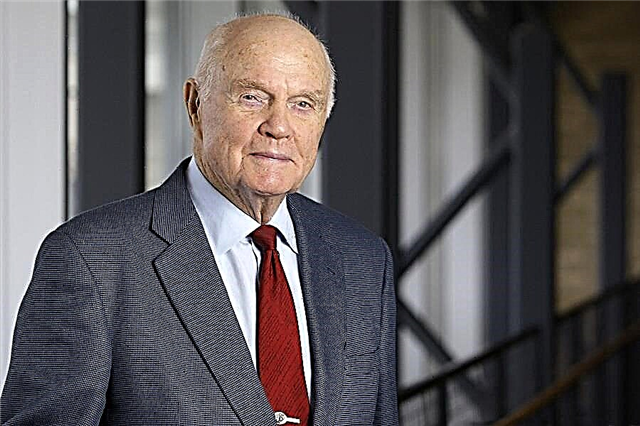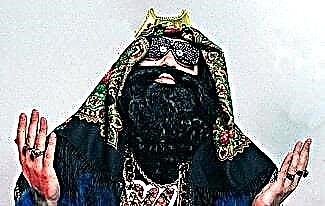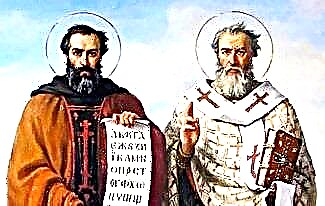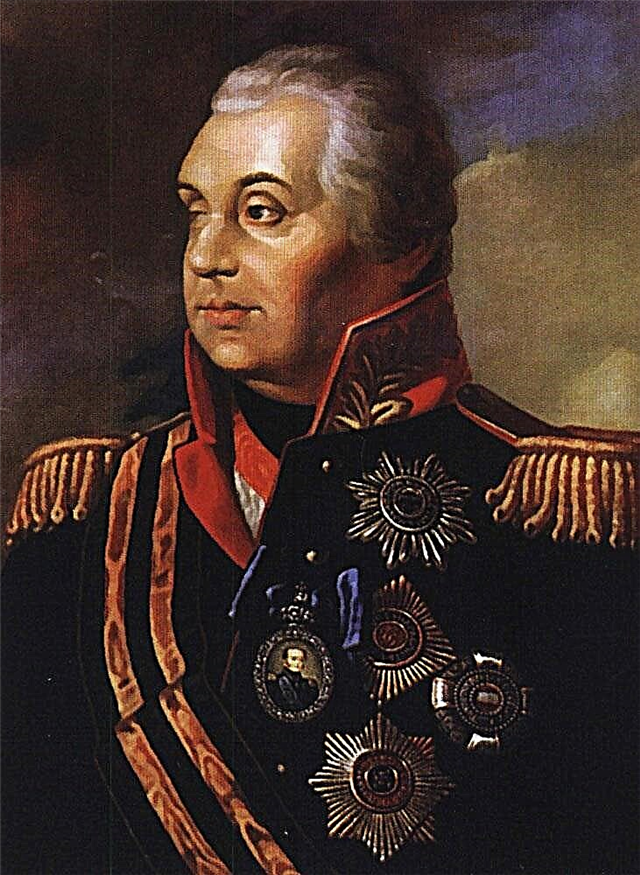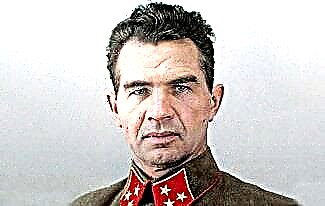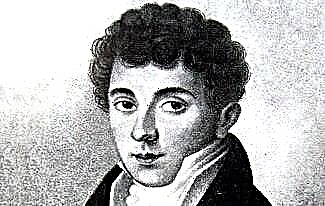Omar Khayyam Nishapuri - Persian philosopher, mathematician, astronomer and poet. Khayyam influenced the development of algebra by constructing a classification of cubic equations and solving them by means of conic sections. Known for creating the most accurate calendars in use today.
The biography of Omar Khayyam is replete with many interesting facts from his scientific, religious and personal life.
So, before you is a short biography of Omar Khayyam.

Biography of Omar Khayyam
Omar Khayyam was born on May 18, 1048 in the Iranian city of Nishapur. He grew up and was brought up in a tent family.
In addition to Omar, his parents had a daughter, Aisha.
Childhood and youth
From an early age, Omar Khayyam was distinguished by curiosity and thirst for knowledge.
Already at the age of 8, the boy deeply studied sciences such as mathematics, philosophy and astronomy. At this time of the biography, he completely read the holy book of Muslims - the Koran.
Soon, Omar became one of the wisest people in the city and then in the country. He possessed excellent oratorical skills, and also perfectly knew Muslim laws and principles.

Omar Khayyam became famous as an expert on the Koran, as a result of which they turned to him for help in interpreting some of the sacred precepts.
When the philosopher was 16 years old, the first serious tragedy happened in his biography. In the midst of the epidemic, both of his parents died.
After that, Khayyam decides to go to Samarkand, with a great desire to continue his studies in various sciences. He sells his father's house and workshop, after which he sets out.
Soon, Sultan Melik Shah 1 drew attention to Omar Khayyam, at whose court the sage began to conduct his research and engage in writing.
Scientific activity
Omar Khayyam was a well-rounded person and one of the most talented scientists of his time. He studied a wide variety of sciences and fields of activity.
The sage was able to carry out a series of meticulous astronomical calculations, on the basis of which he was able to develop the most accurate calendar in the world. Today this calendar is used in Iran.

Omar was seriously interested in mathematics. As a result, his interest was poured into the analysis of Euclid's theory, as well as the creation of a unique system of calculations for quadratic and cubic equations.
Khayyam expertly proved theorems, performed deep calculations and created a classification of equations. His books on algebra and geometry still do not lose their relevance in the scientific world.
Books
Today, biographers of Omar Khayyam cannot determine the exact number of scientific works and literary collections belonging to the pen of the brilliant Iranian.
This is due to the fact that for many centuries after the death of Omar, many sayings and quatrains were attributed to this particular poet in order to avoid punishment for the original authors.
As a result, Persian folklore became the work of Khayyam. It is for this reason that the authorship of the poet is often questioned.
Today literary scholars have managed to establish for sure that over the years of his biography, Omar Khayyam wrote at least 300 works in poetic form.
Today the name of the ancient poet is most associated with his deep quatrains - "rubai". They radically stand out from the rest of the work of the time in which Khayyam lived.
The key difference between writing Rubai is the presence of the author's "I" - a simple character who has not done anything heroic, but reflects on the meaning of life, moral norms, people, actions and other things.
An interesting fact is that before the appearance of Khayyam, all works were written only about rulers and heroes, and not about ordinary people.

Omar used simple language and illustrative examples that were understandable to everyone. At the same time, all his works were filled with the deepest morality that any reader could catch.
Having a mathematical mindset, in his poems, Khayyam resorts to consistency and logic. There is nothing superfluous in them, but on the contrary, each word expresses the thought and idea of the author as much as possible.
Omar Khayyam's views
Omar was seriously interested in theology, boldly expressing his non-standard ideas. He extolled the value of the common man, along with his natural desires and needs.
It is worth noting that Khayyam clearly separated faith in God from religious foundations. He argued that God is in every person's soul, and that he will never leave him.
Omar Khayyam was hated by many Muslim clerics. This was due to the fact that a scientist who knew the Koran perfectly often interpreted its postulates as he considered it correct, and not as it was accepted in society.
The poet wrote a lot about love. In particular, he admired the woman, speaking about her only in a positive way.
Khayyam encouraged men to love the weaker sex and do everything possible to make him happy. He said that for a man, a beloved woman is the highest reward.
Many of Omar's works are dedicated to friendship, which he considered a gift from the Almighty. The poet urged people not to betray their friends and value their communication.
The writer himself admitted that he would prefer to be alone, "than with just anyone."
Omar Khayyam boldly denounced the injustice of the world and emphasized people's blindness to the fundamental values in life. He tried to explain to a person that happiness does not depend on something material or high position in society.
In his reasoning, Khayyam came to the conclusion that a person should value every moment he lived and be able to find positive moments even in the most difficult situations.
Personal life
Although Omar Khayyam extolled love and women in every possible way, he himself never experienced the joy of married life. He could not afford to start a family, as he constantly worked under the threat of persecution.
Perhaps that is why the freethinker lived alone all his life.
Old age and death
All the works of Omar Khayyam that have survived to this day are only a small part of his full-fledged research. He could share his views and observations with people only orally.

The fact is that at that difficult time, science posed a danger to religious institutions, for which reason it was criticized and even persecuted.
Any freethinking and departure from established traditions could lead a person to death.
Omar Khayyam lived a long and eventful life. For many decades he worked under the patronage of the head of state. However, with his death, the philosopher was persecuted for his thoughts.
The last days of Khayyam's biography passed in need. Close people turned away from him, as a result of which he actually became a hermit.
According to legend, the scientist passed away calmly, judiciously, as if on schedule, absolutely accepting what was happening. Omar Khayyam died on December 4, 1131 at the age of 83.
On the eve of his death, he performed ablution, after which he prayed to God and died.

